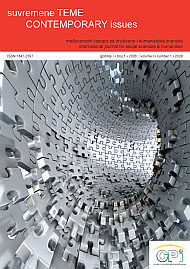Expanding the Public System of Household Assistance: a Pilot Experiment in Slovenia
Expanding the Public System of Household Assistance: a Pilot Experiment in Slovenia
Author(s): Majda HrženjakSubject(s): Politics / Political Sciences
Published by: Centar za politološka istraživanja
Keywords: domestic workers; labor market; intersectionality; gender (in)equality; welfare state; social exclusion; work - family conflict
Summary/Abstract: Irregular paid domestic workers with their activity in domestic sphere and domestic work, reorganize notions of welfare and the relationship between domestic and paid work in European societies in a fundamentally private, anti-egalitarian and exclusionary way. In the EU policies, the regulation of informal domestic work is deemed as a win-win situation: it addresses the needs for more and better home and family services, while at the same time provides for more and better quality jobs for hard-to-employ people. This paper, while discussing work-family conflict in Slovenia, confronts the situations of the two groups of women: on one hand, those twice burdened by productive and reproductive work and hence forced to transfer part of reproductive labor to irregular domestic workers, on the other hand, long-term unemployed women who are facing social exclusion and poverty so that they undertake the work of other women in the grey economy. The focus of the paper is on the discussion of the potential impact of regulation of paid domestic services as policy measure for reducing the social exclusion of long-term unemployed women and work-family conflict.
Journal: Suvremene teme : međunarodni časopis za društvene i humanističke znanosti.
- Issue Year: 2008
- Issue No: 1
- Page Range: 34-48
- Page Count: 15
- Language: English

